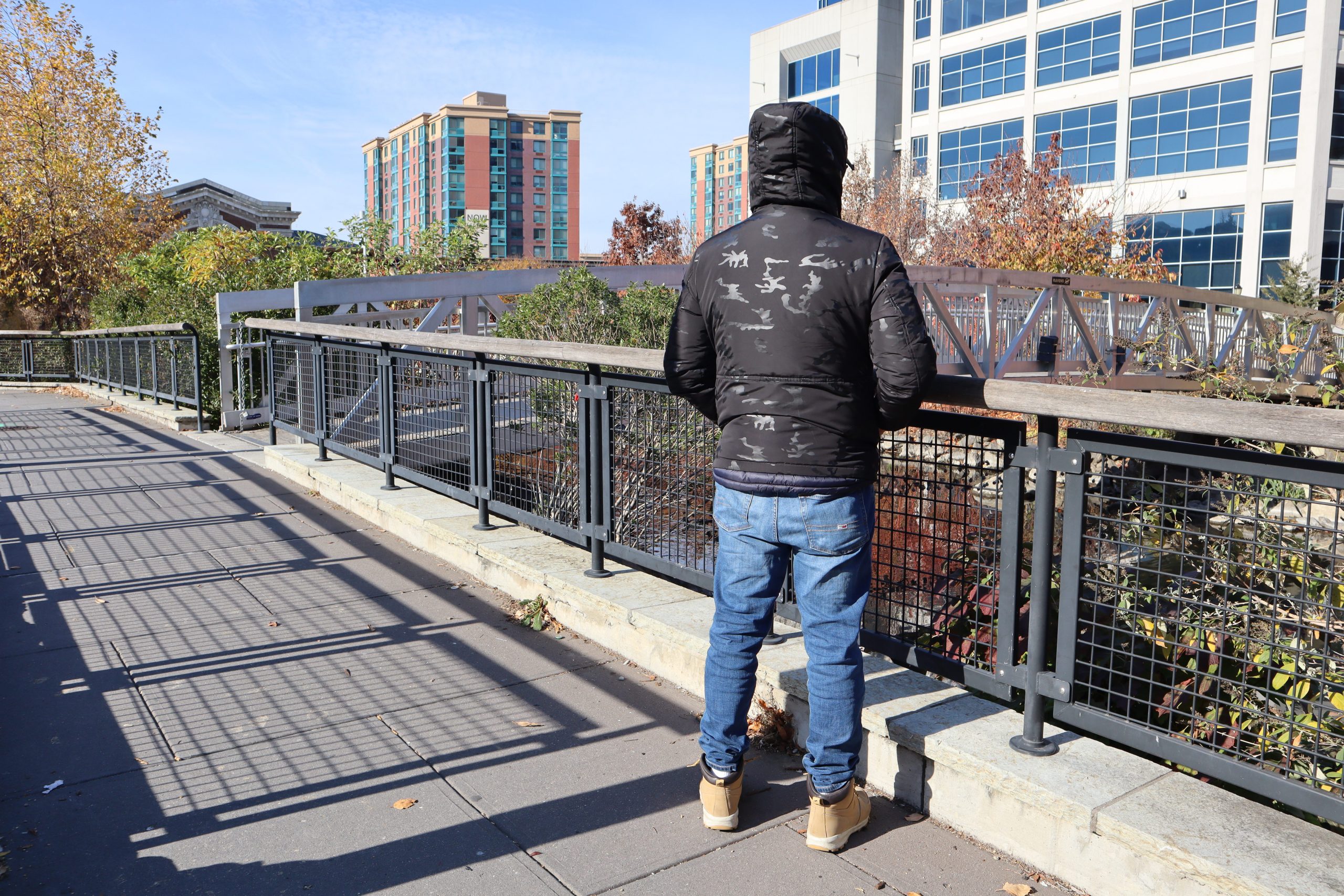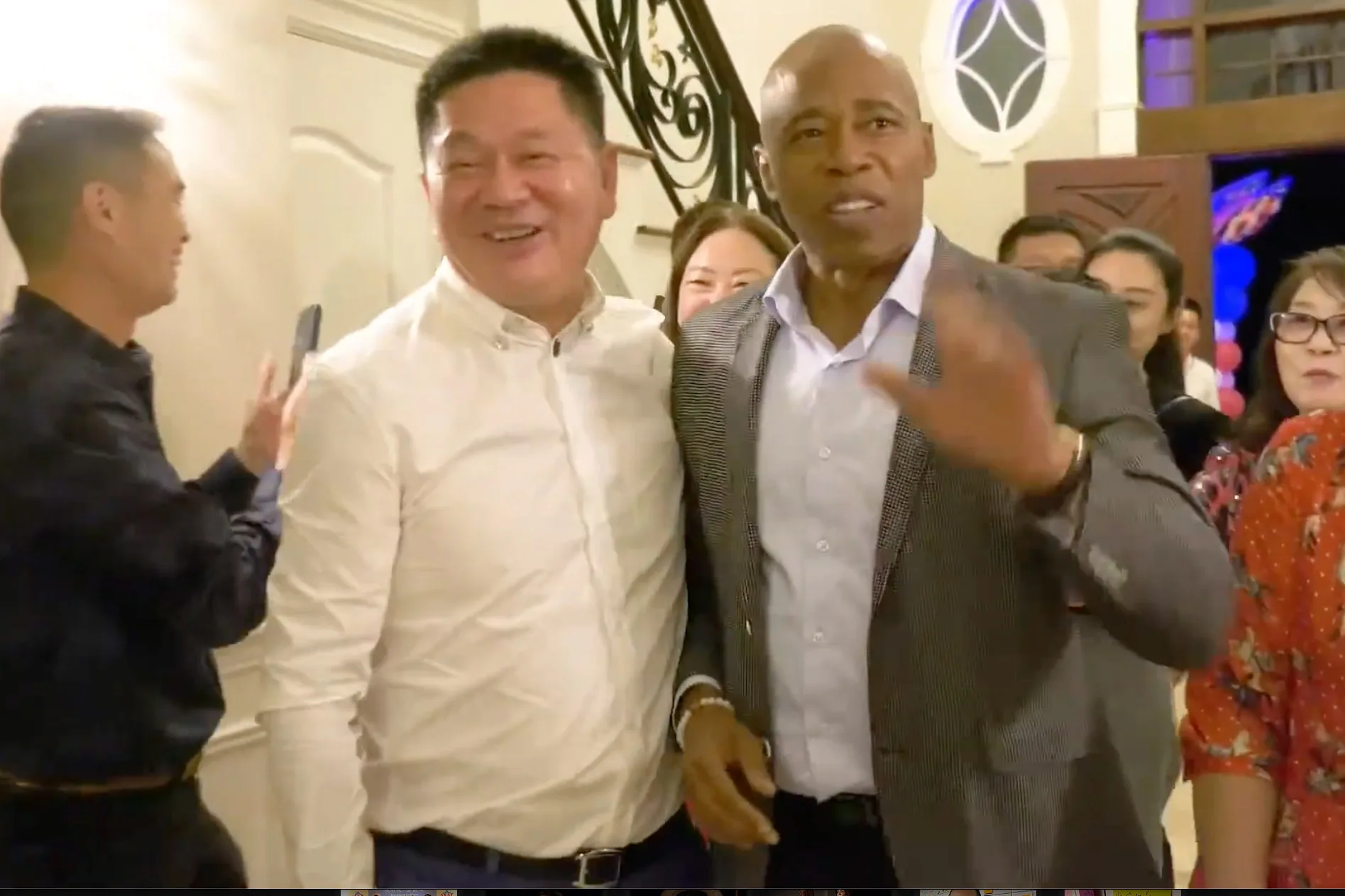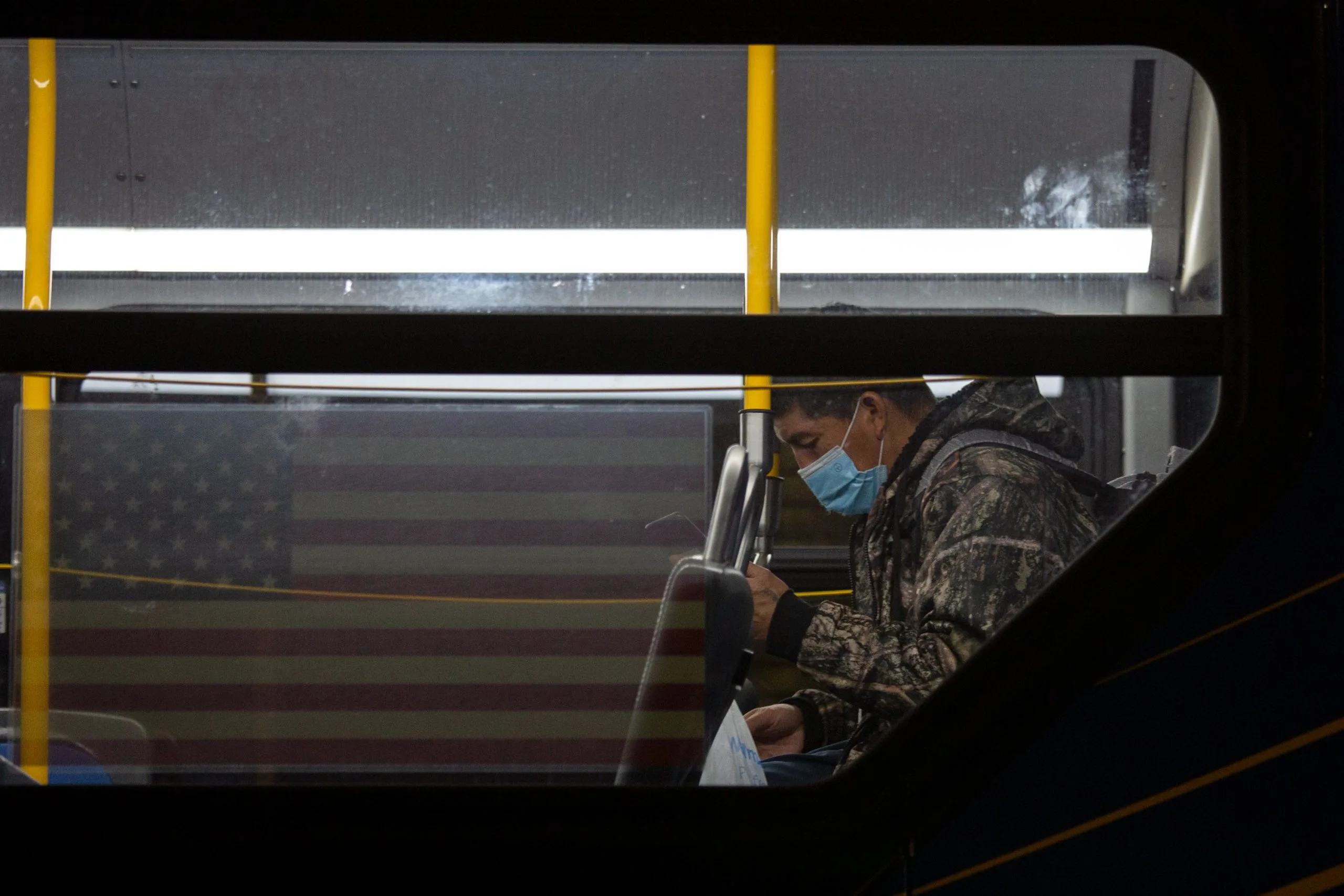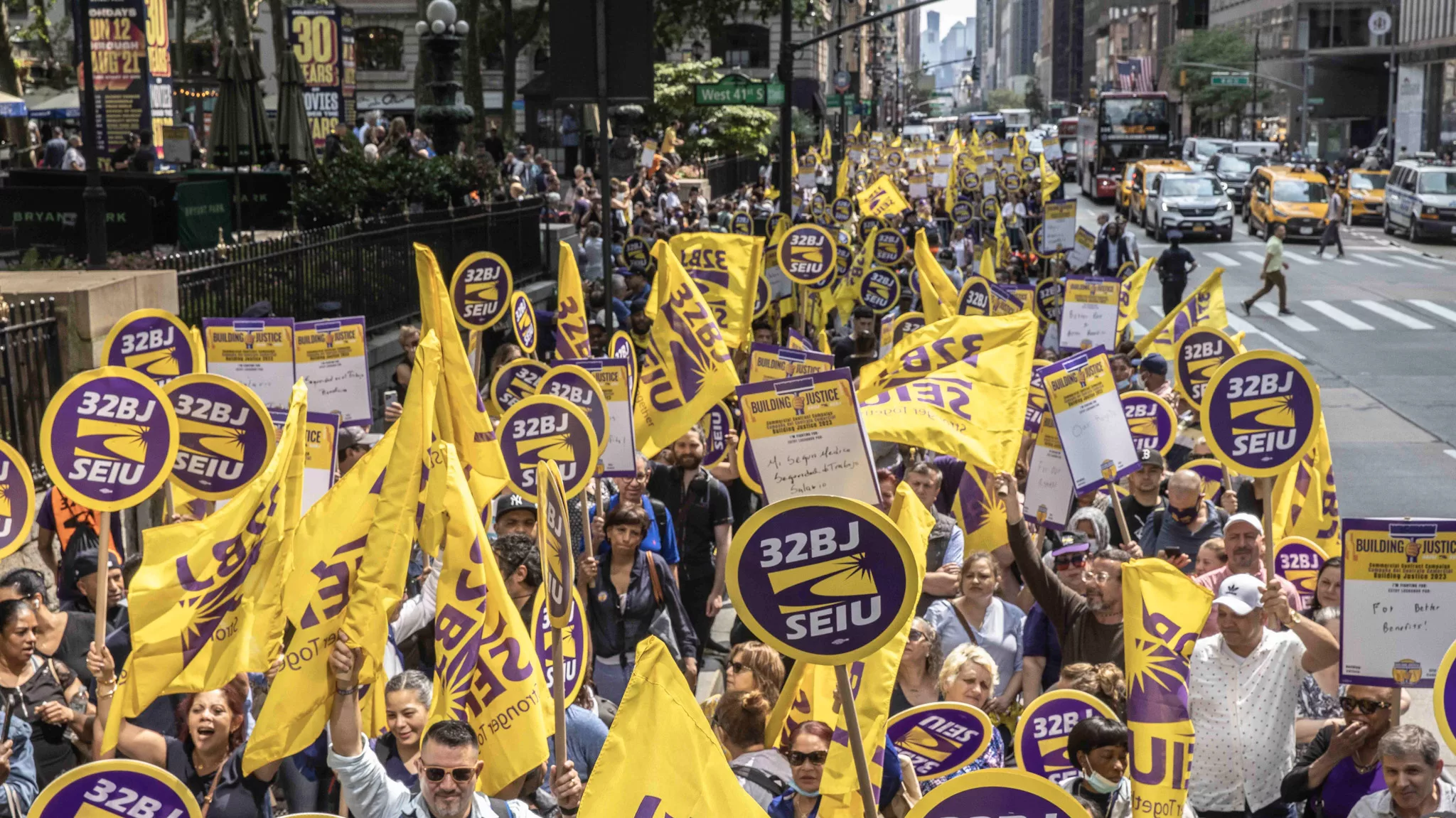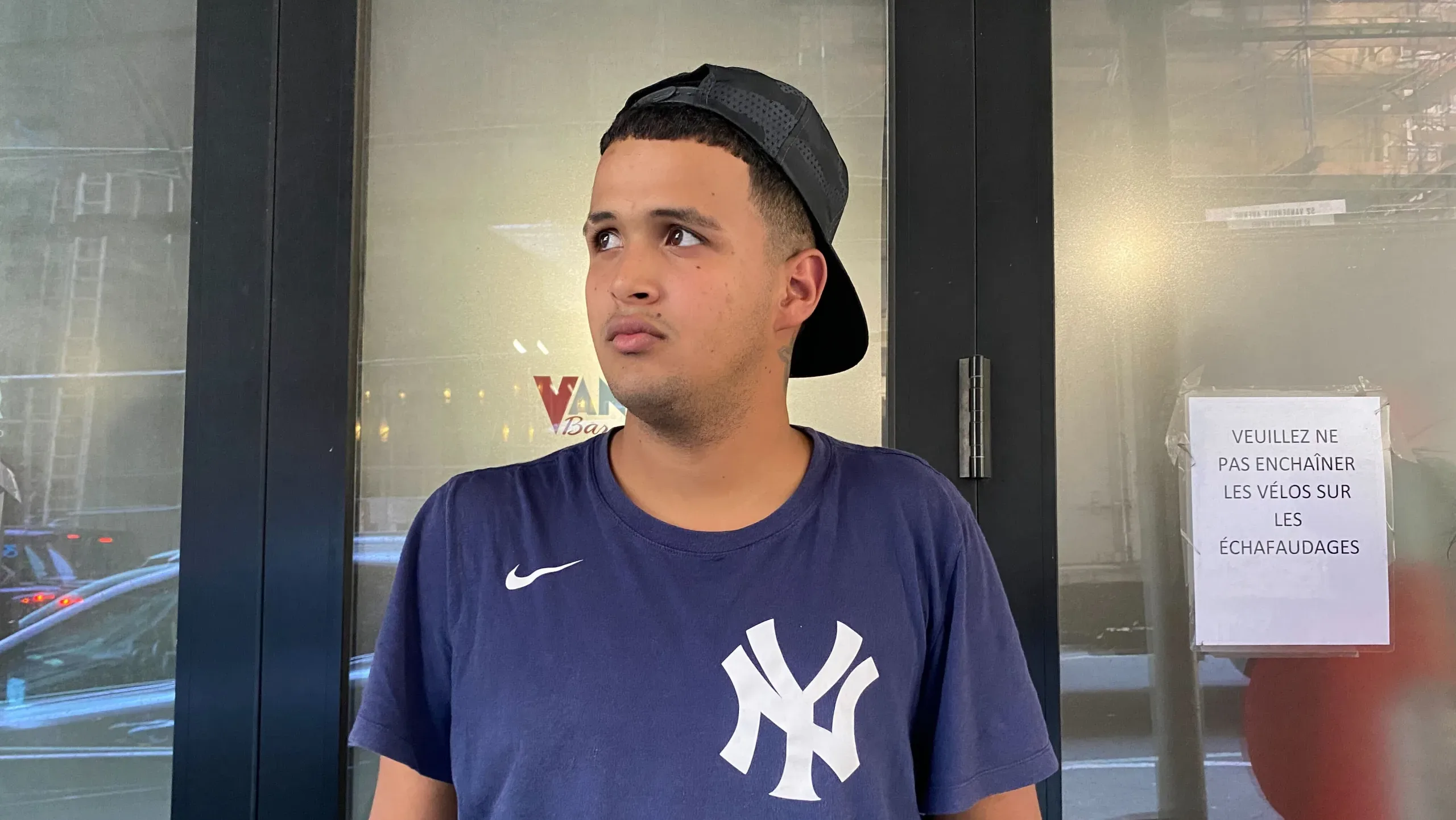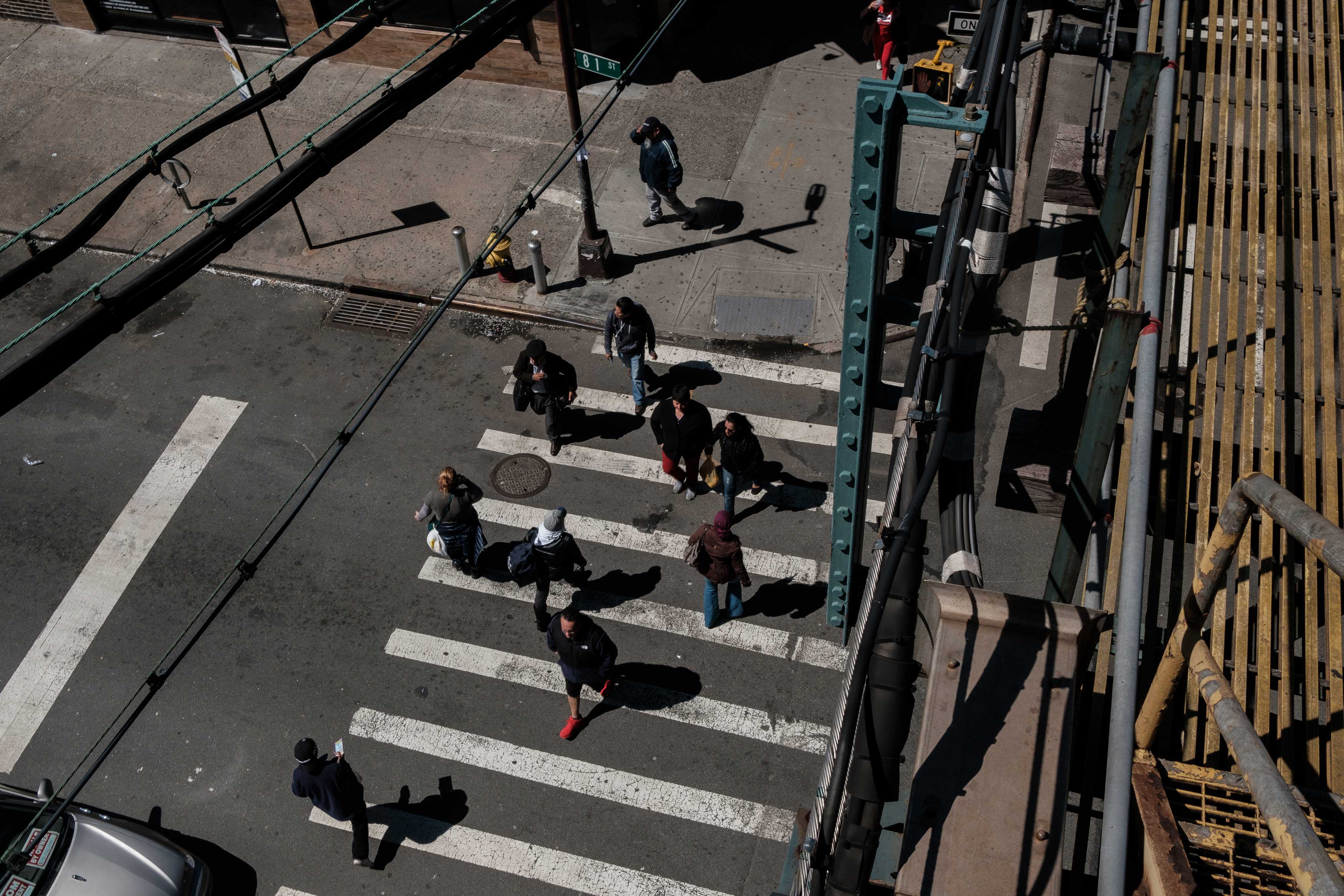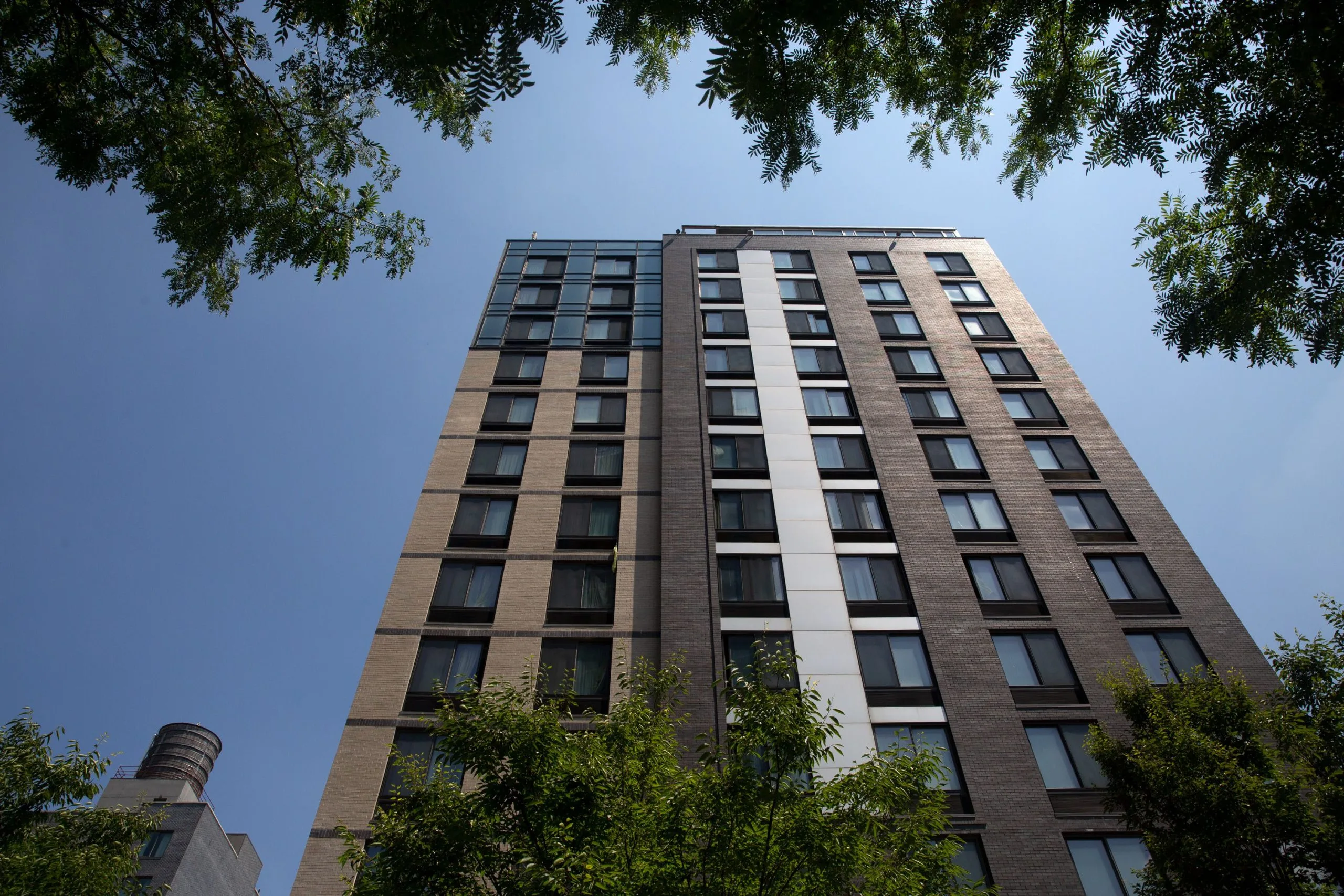Sergio was walking through the streets of Yonkers on a September night in 2013 looking for a place to eat after a night out with friends. When he first came to the United States, he struggled to communicate in English and had difficulty finding work. But a few years in, things were looking up for him. He had a serious partner and a series of reliable jobs, he said.
The group walked down Nepperhan Avenue past small apartments, delis and grocery stores. They stopped outside a shop on the street and decided to try and go inside to find some food – but outside, he and his friends encountered a rowdy group, Sergio said.
Sergio watched the scene devolve into a brawl and he attempted to de-escalate the situation, he said. Suddenly, someone jammed a knife into his right eye.
“When I saw the blood, I felt like my body was leaving me,” said Sergio, an undocumented immigrant from Peru who wanted to go by his middle name for fear of legal ramification of speaking out due to his legal status. As he recalled the incident, he brought his hand up to his cheek, trailing it down his face to show how the blood streamed out of his eye that day.
After he was stabbed, Sergio staggered onto the road, trying to cross in an attempt to flee his attacker and let passing drivers see that he was hurt, he said.
Sergio was “laying in a pool of blood” when the police arrived, according to a police report. Though the night is hazy in his memory, Sergio remembers police showing up at the crime scene and also at the Bronx hospital where he was treated. He recalls speaking to officers briefly at both places. At the time, though, he didn’t know just how vital these conversations would become.
What Sergio wasn’t aware of was that as the victim of a crime, he could be eligible to apply for a so-called U visa, if he cooperated with police. The visa is a legal status that undocumented immigrants can attain if they have been victims of certain crimes and cooperate with law enforcement or government officials in the investigation of the incident. Sergio was eligible for a U visa because of the stabbing and his cooperation with authorities, according to his legal team.
But, there was a major hurdle for Sergio. For a U visa, petitioners must submit a form signed by a law enforcement official attesting that the victim was or will be cooperative in the investigation. The Yonkers Police Department is refusing to sign the U visa certification, barring Sergio’s application from advancing.
“It has been extremely frustrating to not receive a positive response,” said Tomas Lucero, a Victims of Crime Advocate Paralegal at the Empire Justice Center, who is working on Sergio’s case. “This law was created to make the entire community safer.”
A Fruitless Investigation
The period immediately after the attack was grim, Sergio said. Doctors removed his eye the same day of the incident. He wore dark glasses for fear of scaring people with the scarring on his right eye. He struggled to find work and felt like an outcast with employers because of his physical disability.
“You feel like something is missing,” Sergio said. “Because after the attack, I felt empty.”
Sergio played soccer less often — a sport that had brought familiarity in a new country — because he couldn’t properly see the other players on the pitch. He endured bouts of depression. Sergio kept the attack secret from his close family in Peru because he was concerned that they would worry too much about him.
“I feel very limited by what I have,” he said in a recent interview by the Hudson river waterfront in Yonkers. “I think about how I looked before.”
Sergio, 35, is hoping that the attack, which left him maimed, may have one positive outcome — paving the way for him to attain legal status. Before the pandemic, Sergio made a call to an advocacy organization to see what his options may be. His family members in Peru were growing older and falling sick with various ailments, including cancer. Sergio longed to gain a legal status so he could visit home instead of missing their last moments of life. The pandemic intensified that feeling.
Lucero, the paralegal, believes it is “highly probable” that Sergio’s application would be approved. “My opinion is based on the fact that our client’s application (except for the stonewalled certification) meets all of the prerequisites including evidence that he is a victim of a qualifying criminal activity,” Lucero said.
But limited details about the investigation into Sergio’s attackers and a lack of cooperation from police for the visa has left Sergio with a major roadblock in the U visa process that may not be possible to overcome.
In Sergio’s case, it’s unclear if the perpetrator(s) were ever apprehended or charged. His legal team says that they weren’t, and Sergio says he was never notified of any further leads in the case after some initial conversations with the police.
Yonkers Police detectives spoke with Sergio about the crime at the hospital after Sergio was attacked, he said. Sergio remembers police at the crime scene, and officials at the hospital with him. “They didn’t speak with me a lot,” Sergio said.
Sergio’s aunt, who was serving as a translator, had a few conversations with a detective to follow up on the case. The detective told the family that the case was difficult and the assailants had not been apprehended, according to Sergio and his legal team.
The police report said that authorities arrived on scene to find two stabbing victims, including Sergio. Officials “canvassed the area” for a black Nissan Sentra that was reported to be driven by the suspects by witnesses, according to the report, though it is unclear if they spotted any car matching that description. Detectives responded from the crime scene to the hospital to “follow up” with the victims, the police report said.
The case would be referred to the detective’s division for “further investigation,” according to the report. But Sergio has not heard from the police for several years, he said.
On the day of the stabbing, Sergio and the other victim told the detectives that the suspects of the crime were “unknown” to them, and that they didn’t believe they would be able to identify the suspects, according to Yonkers police documents obtained by Documented through a Freedom of Information Law request. Video of the incident was unobtainable, police wrote in the report.
On September 17, 2013, two weeks after the attack, Sergio met with an assigned detective to review “numerous photos” related to the incident, documents show, but the viewing “proved to have negative results.” Sergio was advised to contact the police if any additional information became available.
As of January 15, 2014, officials had not received any additional information with regard to the attack, the report said. Therefore, according to agency documents, the detective assigned to the case opined that the investigation “be deemed inactive pending further developments.”
Also Read: Why Can’t Those With Special Juvenile Status Get Their Green Cards?
Dean Politopoulos, the public information officer for the Yonkers Police Department, said that he could not currently answer questions about the specific incident because he had not yet been able to access the case files since they were never digitized. Politopoulos has submitted a request to retrieve the files, but it will take some time to access them, he said, so he could not respond to questions about the case until he had the case records to review.
But Politopoulos also said: “From what I can tell, is that there were no arrests made in the case. Why there were no arrests, I don’t know.”
Yonkers Police Department “Does Not Endorse” U Visa Applications
Lucero, the paralegal, asked the Yonkers Police Department several times if they would sign the certification form. He was told that the department “does not endorse U visas,” emails show.
In May of 2021, after following up with the police multiple times to no avail, Lucero wrote another letter to the department pleading on behalf of Sergio.
“We respect the fact that your agency has no legal obligation to review and sign” the form, Lucero wrote. “But it is the right thing to do. It is an opportunity to work towards justice in this case. On the other hand, a decision to not sign the certification completely closes all doors to [Sergio] for immigration relief and the chance to get a modicum of justice even if he will never be the same again.”
Lucero received no response to the letter, he said.
Also Read: Backlogged Immigration Courts Prepare for More Asylum Seekers
If police are non-responsive, attorneys can usually turn to a District Attorney’s office to sign a certification on behalf of the immigrant petitioner. But in this case, the Westchester County District Attorney’s Office was not involved in the investigation of this incident, District Attorney Miriam E. Rocah said in a statement to Documented. The office therefore did not have any interaction with Sergio and was not aware of his U visa application request, she said.
“For that reason, this was not a case in which our office would have been in a position to certify the application,” Rocah said.
After Documented contacted the Westchester County District Attorney’s Office to inquire about the specifics of Sergio’s case and about whether the agency was involved, District Attorney Rocah said in the statement: “In learning about this case and the potential impact of the Yonkers Police Department’s policy to not certify U-Visas, we are exploring protocols that can be enacted to ensure that our office can help qualifying cooperating victims receive the assistance they need even when police are unable to make an arrest.”
So Sergio was essentially at the mercy of the police’s inclination to verify his assistance in their inquiries.
“The Yonkers Police Department is our last recourse for certification of the U visa,” Lucero said.
Because of this, Sergio’s visa application is essentially barred from moving forward, even if he may be an ideal candidate.
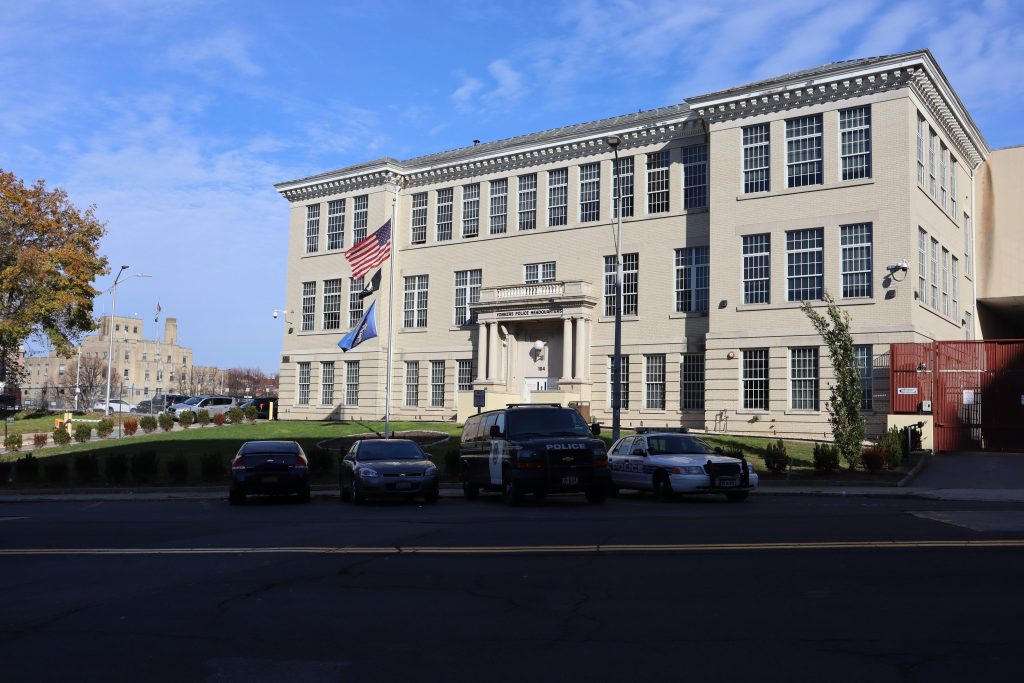
In a response to a detailed list of questions from Documented about the department’s U visa policy, Politopoulos, the public information officer for the Yonkers Police Department, said that the department does not “endorse” U visa applications because “immigration matters are the jurisdiction of Federal authorities,” and “cooperation with law enforcement includes cooperation with prosecutors and meeting court obligations.”
As such, the department defers U visa applicants to the Westchester County District Attorney’s Office of Immigrant affairs, Politopoulos said.
In a telephone interview, Politopoulos reiterated the department’s policy to steer clear of any requests relating to a U visa.
“We don’t get involved in immigration matters. That’s not something that belongs at the local police level. That’s the jurisdiction of federal authorities, that’s our position,” Politopoulos said when asked about the agency being the last recourse for Sergio’s U visa certification. “We’ve had other victims over the years reach out to us — lawyers, attorneys, media personalities — so we’ve had this conversation before.”
But, while federal officials ultimately decide whether or not to grant U visas, local law enforcement authorities have a vital role in this step of the process. “They essentially have veto power,” said Shawn Blumberg, a supervising attorney at the Brooklyn Defender Services. “Their power is massive and if the agency refuses to certify the non-citizen can be left with little recourse.”
And Lucero says that Yonkers police never referred him to the District Attorney’s Office. There was no such referral alluded to in emails sent from the Yonkers police to Lucero, reviewed by Documented. Regardless, as District Attorney Rocah noted, the office could not have certified this particular application because of the agency’s lack of involvement in the case.
Many Police Departments Create Obstacles for U Visa Applicants
In 2019, Reveal published an investigation where they surveyed more than 100 law enforcement agencies operating in places with large immigrant communities, including New York, about their policies on U visas. They found that in New York, the Rochester police department also declines to review all U visa requests.
The outlet’s analysis of policies from more than 100 agencies found that “nearly 1 of every 4 create barriers never envisioned under the U visa program.”
For Sergio, a visa could allow him to work legally and escape the fear of deportation. A U visa can grant individuals a legal status for four years. And petitioners can apply for a green card if they’ve been present continuously under this status for three years, as long as they haven’t “unreasonably refused to provide assistance” to law enforcement since receiving the visa, according to USCIS. While petitions are pending, applicants can apply for work permits —but some caveats apply with who is eligible for this work authorization.
Sergio’s lack of legal status and work authorization, on top of his physical disability, only complicates matters for his job search. “They’re few, the jobs they give me,” Sergio said. Currently, Sergio has found employment helping with trash pick up and other tasks in Yonkers and surrounding areas.
The visa would also eventually enable Sergio to visit his family back home in Lima, Peru — his father and two sisters, whom he hasn’t seen since leaving for the United States more than ten years ago. “I would love that,” he said. Earlier this year, his sister and his father back in Peru both got Covid-19, but recovered. A grandmother has passed away, and a grandfather has terminal cancer, without much time left to live.
These experiences have made him realize how far he is from his loved ones. “It was harder, I couldn’t help them,” Sergio said. But as long as the Yonkers Police Department refuses to sign the certification, the dream to visit family back home remains out of reach.
Learning to Adapt
Sergio has undergone two major surgeries, the most recent one in April of this year. He says medicines prescribed to avoid infection make him sick. If he wants to look at something on the right side of his body, he has to completely turn his head.
“You have to adapt yourself,” he said. “You can get in an accident, you can fall, you accidentally bump into people,” he said, adding that he has had to apologize to people for running into them. “I feel really bad about that.”
And it’s not just the physical side effects. Sometimes, Sergio said, he feels like “a little bit of an outsider.”
“Those things,” Sergio added, “are too sad.”
The weight of keeping the attack private from family back home is painful, too, he said. But the fear of worrying his family seems greater than any relief that would come with telling them.
“I didn’t want to be a burden to them. I love them so much, and it would hurt me a lot to tell them about everything that has happened to me,” he said.
Mostly, Sergio tries to push the incident to the back of his mind: “When I forget about it, I think I am happier.”
But it’s not easy to forget.
This story was updated to add information obtained by Documented through a Freedom of Information Law request.
